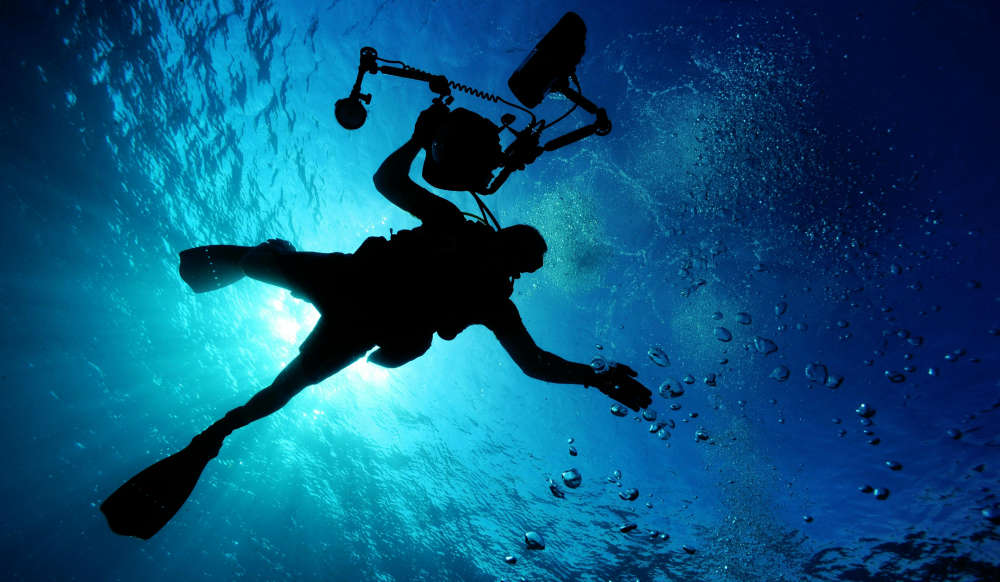The Future of Underwater Exploration: Breaking New Boundaries

Underwater exploration has long fascinated humankind, pushing the boundaries of science and technology. With the development of cutting-edge technologies and innovative systems, we are now standing on the brink of a new era in exploring the depths of the oceans.
From deep-sea habitats to autonomous underwater vehicles, the future of underwater exploration promises exciting possibilities that could radically alter our understanding of the ocean's mysteries.
Advancements in Deep-Sea Habitat Technology
One of the most groundbreaking innovations in underwater exploration is the development of deep-sea habitat systems. These habitats allow humans to live and work underwater for extended periods, providing an unprecedented opportunity to study and interact with the ocean environment.
The DEEP Sentinel subsea habitat system from deep.com, for example, enables scientists, engineers, and researchers to explore the depths of the ocean more safely and efficiently.
These habitats unlock the potential for long-term research in previously unreachable ocean areas by providing life-support systems, advanced communications, and pressure-resistant environments.
With the ability to remain submerged for weeks or even months, these habitats can facilitate deeper and more comprehensive studies of ocean ecosystems, geology, and marine life.
This technological leap opens new doors for understanding oceanic processes and discovering new species, resources, and hidden geological structures that have been inaccessible until now.
The Role of Autonomous Underwater Vehicles (AUVs)
Autonomous Underwater Vehicles (AUVs) are revolutionising underwater exploration by providing a means of surveying and collecting data from ocean depths without human intervention.
These vehicles are equipped with sensors and cameras, allowing them to map the seafloor, monitor ocean conditions, and even explore underwater caves and shipwrecks.
AUVs are particularly useful in dangerous or difficult-to-reach environments where human divers or remotely operated vehicles (ROVs) might not be feasible. They can navigate through narrow underwater corridors, withstand extreme pressures, and cover vast distances, all while gathering valuable data for research.
As AUV technology continues to improve, we can expect to see even more sophisticated designs capable of reaching the deepest parts of the ocean, unlocking secrets that have been hidden for millennia.
Integrating Artificial Intelligence (AI) and Machine Learning
The future of underwater exploration is also closely tied to advancements in Artificial Intelligence (AI) and machine learning.
These technologies can process vast amounts of data collected by AUVs, ROVs, and underwater habitats, identifying patterns and anomalies that humans might otherwise miss. AI algorithms can analyse oceanic data in real time, providing instant feedback for researchers and assisting in decision-making processes during deep-sea explorations.
Machine learning models can also be used to predict ocean currents, temperatures, and even potential hazards for deep-sea missions. As AI continues to evolve, we can expect a more efficient, autonomous, and intelligent approach to underwater exploration, where machines work alongside humans to unlock the ocean's vast and complex mysteries.
Sustainable Exploration: Protecting Ocean Ecosystems
As underwater exploration advances, it is crucial to consider its environmental impact. The deep-sea habitats, AUVs, and other exploration tools must be designed with sustainability in mind to minimise disruption to fragile ocean ecosystems.
Innovations in green technology, such as energy-efficient power sources and low-impact materials, are essential to ensure that our exploration efforts do not harm the very environments we seek to study.
By adopting sustainable practices and prioritising conservation, the future of underwater exploration can be both groundbreaking and responsible, allowing us to discover and protect the wonders of the deep ocean for generations to come.
Conclusion: A New Era in Underwater Exploration
The future of underwater exploration is an exciting frontier that promises to expand our knowledge of the planet's most unexplored regions. With advancements in deep-sea habitats, AUVs, AI, and sustainability practices, we are on the verge of discovering new depths and unlocking the secrets of the ocean.
As technology continues to break new boundaries, the mysteries of the deep will no longer remain hidden, and humanity's understanding of the ocean will reach new heights.



